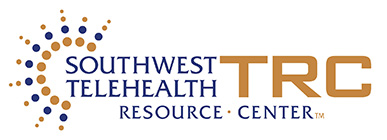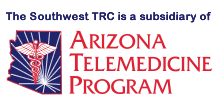
Telemedicine is when technology is used to deliver care at a distance. A physician or some other healthcare provider is in a different location than the patient, delivering care virtually, over video or phone.
Since the spread of the Covid-19 virus in 2020 telehealth and telemedicine coverage has been expanded, which was previously covered only in a limited fashion. Therefore, there has been a large increase in Medicare recipients seeing physicians using telemedicine. Many types of visits in most specialties can be handled through a virtual or telemedicine visit. This is especially important for the Medicare population, since it is mitigating their risk by not going to an office with exposure to others. In some circumstances it may still be necessary to do an in-person visit, for example to get an x-ray exam, get labs done or have a procedure done. Here are five helpful tips to help you best prepare for a Medicare telemedicine appointment.
- Make sure your insurance will cover telehealth appointments
Most plans will cover certain telemedicine appointments, though you could be responsible for a copay. Check with your insurance plan to confirm your coverage includes telemedicine and whether you need approval for a telehealth appointment. It might be useful to get a copy of the policy for your reference as well as to give to your provider’s billing department if they do try to charge you directly.
- Practice with the technology you will use for your appointment
Find out whether they use a video conference platform, such as their website or Zoom, or if you will speak over the phone. Typically they will tell you this when you schedule the visit and will send you information on what to do and when.
If you will be using a digital platform make sure you know what browser it works best on (e.g., Chrome, Firefox). Decide if you will be using your smartphone or laptop if connecting to a video conference platform. A laptop might be better as it has a bigger screen. If using your phone you should find a stand or other way to prop it up so it is on a stable platform rather than having to hold it. You may also want to consider using headphones if your location is noisy or if you have trouble hearing.
If you are using a digital platform, make sure you have downloaded and tested the software you will use to connect with your doctor. If you are using a phone, make sure you have a strong phone connection. Ask what you should do if you have any technical problems during the appointment.
If you need help, ask a friend, relative or neighbor to help you. In addition, if you are not fully comfortable in English and need help translating, make sure to bring a family member that can help with communication or let your provider know you need a translator. This includes sign language. Also make sure you’re in a quiet place with good lighting, and no distractions. All your devices should be charged.
- Prepare for your appointment
Do your homework and prepare for your appointment so you can make the best out of your time with your physician. Write down your symptoms. Include what they are, when they started, how long you’ve had them, if they’ve gotten worse, and what you’ve used to treat them. Be as specific as possible regarding where it hurts and what your symptoms are. Also write down the questions you have for your doctor. Have a pen and paper nearby to take notes during the appointment.
- Have important health information handy, including:
- a list of your allergies and chronic conditions
- insurance information
- list of your current medications
- your pharmacy and your primary care physician information. Including; the name, address, and phone number
- who they can contact in case of an emergency
- Understand the follow-up care needed
Check if your physician will email you details of the visit (if not how will they get that information to you) and next steps after your done. If not, make sure you spend some time writing down the next steps you need to do. Understand if you need a prescription or lab work or a follow-up appointment and make sure you know what are the next steps to make that happen.
Using these 5 tips for your next Medicare telemedicine appointment can help maximize your time with your healthcare provider. If you're looking for additional ways to maximize your healthcare Connie Health can help. We can help find the right Medicare plan for you. Visit us at conniehealth.com to learn more.


